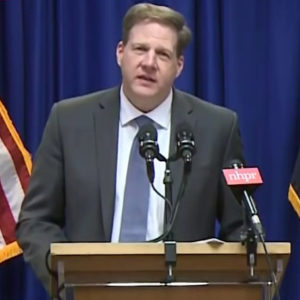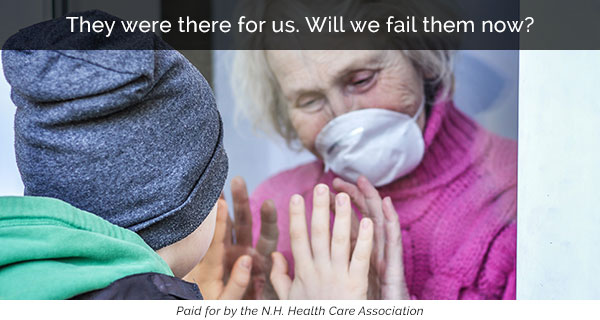Gov. Chris Sununu calls New Hampshire’s 16 percent unemployment rate “staggering,” but he told NHJournal that the economic sacrifice has been worth the cost.
During Wednesday’s COVID-19 news conference, Department of Health and Human Services Commissioner Lori Shibinette announced New Hampshire’s death toll hit 190 with eight new fatalities — six of which were at long-term care facilities (LTCFs). Currently, around 95 percent of all deaths in the Granite State are associated with LTCFs, while the death rate among people under 60 years old without any comorbidities remains zero.
In fact, coronavirus has claimed the lives of 1 percent of the state’s LTCF residents. (If it impacted the overall population at the same rate, there would be 13,000 COVID-19 deaths in New Hampshire.)
But if the impact of the coronavirus in New Hampshire has been narrowly limited to the state’s elderly community, the impact of the statewide economic lockdown has been widespread — and devastating. An estimated 175,000 Granite Staters are out of work due to the lockdown, and news of permanent business closures are announced every day.
Darryl Parker, who announced his Schoodacs coffee shop on Warner, N.H.’s Main Street is closing, told the Concord Monitor: “We literally could come out of this on the other side and there won’t be a single restaurant in town. We could wipe Warner out, and it won’t be because people don’t want it.”
Can Sununu assure Granite Staters like Parker and the tens of thousands of others who are suffering deep economic harm that their sacrifice is worth the benefit to the state as a whole? Particularly when the death rate outside of nursing homes is so extremely low?
“I stand by the very difficult decision of asking businesses to shut down,” Sununu answered. “There is a reason why we’re in such a good position right now. It’s because we made those decisions. It isn’t a coincidence. There’s a direct relation in terms of the health of the state and the decisions that we made. That is unquestionable.”
“The decisions we had to make were very tough decisions, but they were the right ones,” Sununu added.
Sununu acknowledged the “16 percent unemployment number is a staggering number,” but speculated that the reason it isn’t at the forefront of the lockdown conversation is “it’s not shocking in that we knew it was coming. We’ve been watching the unemployment numbers on a day-by-day basis.”
And, Sununu added, New Hampshire may end up benefiting from the coronavirus in the long-term.
“I was reading a study recently about what’s going to happen in the cities. Is there going to be a massive de-urbanization of businesses and families out of cities that were hit the hardest by this pandemic? Will people say, ‘You know what? I can live and work in southern New Hampshire just as easily as I can in downtown Boston, and I can do it a lot cheaper with a lot better quality of life.’ I absolutely think there’s going to be a positive aspect of what we can see here in New Hampshire,” Sununu said.
“It’s very important for folks to understand that we are poised for success here,” Sununu said.
Business owners in beach communities who’ll spend the vital Memorial Day weekend shut down worry they won’t be around to enjoy that future success. Restaurants who’ve been closed for two months and are unable to serve outdoors may not have the savings to stick it out until summer.
“Poised? We’ve collapsed the entire economy. How can he talk about ‘poised,'” a Manchester business owner and longtime Republican told NHJournal. “Of course he’s going to say the lockdown was worth it. The question in the end is, will the people who lost their jobs think it was worth it?”


